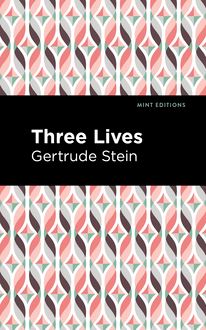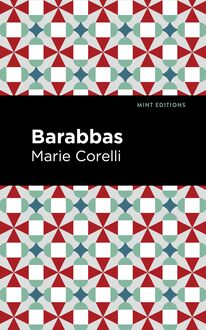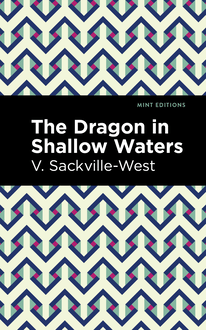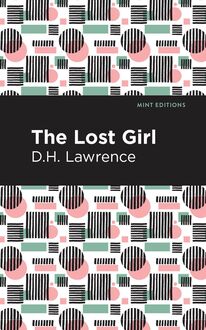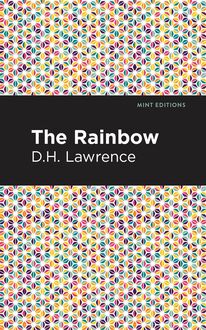-
 Univers
Univers
-
 Ebooks
Ebooks
-
 Livres audio
Livres audio
-
 Presse
Presse
-
 Podcasts
Podcasts
-
 BD
BD
-
 Documents
Documents
-
- Cours
- Révisions
- Ressources pédagogiques
- Sciences de l’éducation
- Manuels scolaires
- Langues
- Travaux de classe
- Annales de BEP
- Etudes supérieures
- Maternelle et primaire
- Fiches de lecture
- Orientation scolaire
- Méthodologie
- Corrigés de devoir
- Annales d’examens et concours
- Annales du bac
- Annales du brevet
- Rapports de stage
La lecture à portée de main
Vous pourrez modifier la taille du texte de cet ouvrage
Découvre YouScribe en t'inscrivant gratuitement
Je m'inscrisDécouvre YouScribe en t'inscrivant gratuitement
Je m'inscrisEn savoir plus
Vous pourrez modifier la taille du texte de cet ouvrage
En savoir plus

Description
Men, Women, and Ghosts (1916) is a poetry collection by Amy Lowell. Published at the beginning of her career as an influential imagist devoted to classical poetic themes and forms, Men, Women, and Ghosts is an agile and promising work from a pioneering poet of the early twentieth century. In “Patterns,” the collection’s opening poem, Lowell displays an economy of language and clarity of vision that would define the imagist school, in which she would prove an essential figure: “I walk down garden paths, / And all the daffodils / Are blowing, and the bright blue squills. / […] / I too am a rare / Pattern. As I wander down / The garden paths.” As the speaker of the poem laments the loss of her lover, she remarks: “the man who should loose me is dead, / Fighting with the Duke in Flanders, / In a pattern called a war. / Christ! What are patterns for?” As a poet indebted to tradition and yet interested in the prospect of a modern poetry, as a lesbian and bohemian figure from a prominent Boston family, Lowell was keenly aware of the dangers inherent to “patterns.” Her poems, unique and experimental, are an essential contribution to one of humanity’s oldest art forms. Men, Women, and Ghosts is a vibrant collection from an emerging poet who would come to define the imagist movement throughout her storied career. With a beautifully designed cover and professionally typeset manuscript, this edition Amy Lowell’s Men, Women, and Ghosts is a classic work of American poetry reimagined for modern readers.
Sujets
Informations
| Publié par | Mint Editions |
| Date de parution | 03 août 2021 |
| Nombre de lectures | 0 |
| EAN13 | 9781513297378 |
| Langue | English |
| Poids de l'ouvrage | 1 Mo |
Informations légales : prix de location à la page 0,0500€. Cette information est donnée uniquement à titre indicatif conformément à la législation en vigueur.
Extrait
Men, Women, and Ghosts
Amy Lowell
Men, Women, and Ghosts was first published in 1916.
This edition published by Mint Editions 2021.
ISBN 9781513295879 | E-ISBN 9781513297378
Published by Mint Editions®
minteditionbooks.com
Publishing Director: Jennifer Newens
Design & Production: Rachel Lopez Metzger
Project Manager: Micaela Clark
Typesetting: Westchester Publishing Services
C ONTENTS P REFACE F IGURINES IN O LD S AXE P ATTERNS P ICKTHORN M ANOR T HE C REMONA V IOLIN T HE C ROSS- R OADS A R OXBURY G ARDEN 1777 B RONZE T ABLETS T HE F RUIT S HOP M ALMAISON T HE H AMMERS T WO T RAVELLERS IN THE P LACE V ENDOME W AR P ICTURES T HE A LLIES T HE B OMBARDMENT L EAD S OLDIERS T HE P AINTER ON S ILK A B ALLAD OF F OOTMEN T HE O VERGROWN P ASTURE R EAPING O FF THE T URNPIKE T HE G ROCERY N UMBER 3 ON THE D OCKET C LOCKS T ICK A C ENTURY N IGHTMARE: A T ALE FOR AN A UTUMN E VENING T HE P APER W INDMILL T HE R ED L ACQUER M USIC- S TAND S PRING D AY T HE D INNER- P ARTY S TRAVINSKY’S T HREE P IECES “ G ROTESQUES,” FOR S TRING Q UARTET T OWNS IN C OLOUR Red Slippers Thompson’s Lunch Room—Grand Central Station An Opera House Afternoon Rain in State Street An Aquarium
P REFACE
T his is a book of stories. For that reason I have excluded all purely lyrical poems. But the word “stories” has been stretched to its fullest application. It includes both narrative poems, properly so called; tales divided into scenes; and a few pieces of less obvious story-telling import in which one might say that the dramatis personae are air, clouds, trees, houses, streets, and such like things.
It has long been a favourite idea of mine that the rhythms of ‘vers libre’ have not been sufficiently plumbed, that there is in them a power of variation which has never yet been brought to the light of experiment. I think it was the piano pieces of Debussy, with their strange likeness to short vers libre poems, which first showed me the close kinship of music and poetry, and there flashed into my mind the idea of using the movement of poetry in somewhat the same way that the musician uses the movement of music.
It was quite evident that this could never be done in the strict pattern of a metrical form, but the flowing, fluctuating rhythm of vers libre seemed to open the door to such an experiment. First, however, I considered the same method as applied to the more pronounced movements of natural objects. If the reader will turn to the poem, “A Roxbury Garden,” he will find in the first two sections an attempt to give the circular movement of a hoop bowling along the ground, and the up and down, elliptical curve of a flying shuttlecock.
From these experiments, it is but a step to the flowing rhythm of music. In “The Cremona Violin,” I have tried to give this flowing, changing rhythm to the parts in which the violin is being played. The effect is farther heightened, because the rest of the poem is written in the seven line Chaucerian stanza; and, by deserting this ordered pattern for the undulating line of vers libre, I hoped to produce something of the suave, continuous tone of a violin. Again, in the violin parts themselves, the movement constantly changes, as will be quite plain to any one reading these passages aloud.
In “The Cremona Violin,” however, the rhythms are fairly obvious and regular. I set myself a far harder task in trying to transcribe the various movements of Stravinsky’s “Three Pieces ‘Grotesques’, for String Quartet.” Several musicians, who have seen the poem, think the movement accurately given.
These experiments lead me to believe that there is here much food for thought and matter for study, and I hope many poets will follow me in opening up the still hardly explored possibilities of vers libre.
A good many of the poems in this book are written in “polyphonic prose.” A form about which I have written and spoken so much that it seems hardly necessary to explain it here. Let me hastily add, however, that the word “prose” in its name refers only to the typographical arrangement, for in no sense is this a prose form. Only read it aloud, Gentle Reader, I beg, and you will see what you will see. For a purely dramatic form, I know none better in the whole range of poetry. It enables the poet to give his characters the vivid, real effect they have in a play, while at the same time writing in the ‘decor’.
One last innovation I have still to mention. It will be found in “Spring Day,” and more fully enlarged upon in the series, “Towns in Colour.” In these poems, I have endeavoured to give the colour, and light, and shade, of certain places and hours, stressing the purely pictorial effect, and with little or no reference to any other aspect of the places described. It is an enchanting thing to wander through a city looking for its unrelated beauty, the beauty by which it captivates the sensuous sense of seeing.
I have always loved aquariums, but for years I went to them and looked, and looked, at those swirling, shooting, looping patterns of fish, which always defied transcription to paper until I hit upon the “unrelated” method. The result is in “An Aquarium.” I think the first thing which turned me in this direction was John Gould Fletcher’s “London Excursion,” in “Some Imagist Poets.” I here record my thanks.
For the substance of the poems—why, the poems are here. No one writing today can fail to be affected by the great war raging in Europe at this time. We are too near it to do more than touch upon it. But, obliquely, it is suggested in many of these poems, most notably those in the section, “Bronze Tablets.” The Napoleonic Era is an epic subject, and waits a great epic poet. I have only been able to open a few windows upon it here and there. But the scene from the windows is authentic, and the watcher has used eyes, and ears, and heart, in watching.
Amy Lowell
July 10, 1916
FIGURINES IN OLD SAXE
P ATTERNS
I walk down the garden paths,
And all the daffodils
Are blowing, and the bright blue squills.
I walk down the patterned garden-paths
In my stiff, brocaded gown.
With my powdered hair and jewelled fan,
I too am a rare
Pattern. As I wander down
The garden paths.
My dress is richly figured,
And the train
Makes a pink and silver stain
On the gravel, and the thrift
Of the borders.
Just a plate of current fashion,
Tripping by in high-heeled, ribboned shoes.
Not a softness anywhere about me,
Only whalebone and brocade.
And I sink on a seat in the shade
Of a lime tree. For my passion
Wars against the stiff brocade.
The daffodils and squills
Flutter in the breeze
As they please.
And I weep;
For the lime-tree is in blossom
And one small flower has dropped upon my bosom.
And the plashing of waterdrops
In the marble fountain
Comes down the garden-paths.
The dripping never stops.
Underneath my stiffened gown
Is the softness of a woman bathing in a marble basin,
A basin in the midst of hedges grown
So thick, she cannot see her lover hiding,
But she guesses he is near,
And the sliding of the water
Seems the stroking of a dear
Hand upon her.
What is Summer in a fine brocaded gown!
I should like to see it lying in a heap upon the ground.
All the pink and silver crumpled up on the ground.
I would be the pink and silver as I ran along the paths,
And he would stumble after,
Bewildered by my laughter.
I should see the sun flashing from his sword-hilt and the buckles on his shoes.
I would choose
To lead him in a maze along the patterned paths,
A bright and laughing maze for my heavy-booted lover,
Till he caught me in the shade,
And the buttons of his waistcoat bruised my body as he clasped me,
Aching, melting, unafraid.
With the shadows of the leaves and the sundrops,
And the plopping of the waterdrops,
All about us in the open afternoon—
I am very like to swoon
With the weight of this brocade,
For the sun sifts through the shade.
Underneath the fallen blossom
In my bosom,
Is a letter I have hid.
It was brought to me this morning by a rider from the Duke.
“Madam, we regret to inform you that Lord Hartwell
Died in action Thursday se’nnight.”
As I read it in the white, morning sunlight,
The letters squirmed like snakes.
“Any answer, Madam,” said my footman.
“No,” I told him.
“See that the messenger takes some refreshment.
No, no answer.”
And I walked into the garden,
Up and down the patterned paths,
In my stiff, correct brocade.
The blue and yellow flowers stood up proudly in the sun,
Each one.
I stood upright too,
Held rigid to the pattern
By the stiffness of my gown.
Up and down I walked,
Up and down.
In a month he would have been my husband.
In a month, here, underneath this lime,
We would have broke the pattern;
He for me, and I for him,
He as Colonel, I as Lady,
On this shady seat.
He had a whim
That sunlight carried blessing.
And I answered, “It shall be as you have said.”
Now he is dead.
In Summer and in Winter I shall walk
Up and down
The patterned garden-paths
In my stiff, brocaded gown.
The squills and daffodils
Will give place to pillared roses, and to asters, and to snow.
I shall go
Up and down,
In my gown.
Gorgeously arrayed,
Boned and stayed.
And the softness of my body will be guarded from embrace
By each button, hook, and lace.
For the man who should loose me is dead,
Fighting with the Duke in Flanders,
In a pattern called a war.
Christ! What are patterns for?
P ICKTHORN M ANOR
I
How fresh the Dartle’s little waves that day!
A steely silver, underlined with blue,
And flashing where the round clouds, blown away,
Let drop the yellow sunshine to gleam through
And tip the edges of the waves with shifts
And spots of whitest fire, hard like gems
Cut from the midnight moon they were, and sharp
As wind through leafless stems.
The Lady Eunice walked between the drifts
Of blooming cherry-trees, and watched the rifts
Of clouds drawn through the river’
-
 Univers
Univers
-
 Ebooks
Ebooks
-
 Livres audio
Livres audio
-
 Presse
Presse
-
 Podcasts
Podcasts
-
 BD
BD
-
 Documents
Documents
-
Jeunesse
-
Littérature
-
Ressources professionnelles
-
Santé et bien-être
-
Savoirs
-
Education
-
Loisirs et hobbies
-
Art, musique et cinéma
-
Actualité et débat de société
-
Jeunesse
-
Littérature
-
Ressources professionnelles
-
Santé et bien-être
-
Savoirs
-
Education
-
Loisirs et hobbies
-
Art, musique et cinéma
-
Actualité et débat de société
-
Actualités
-
Lifestyle
-
Presse jeunesse
-
Presse professionnelle
-
Pratique
-
Presse sportive
-
Presse internationale
-
Culture & Médias
-
Action et Aventures
-
Science-fiction et Fantasy
-
Société
-
Jeunesse
-
Littérature
-
Ressources professionnelles
-
Santé et bien-être
-
Savoirs
-
Education
-
Loisirs et hobbies
-
Art, musique et cinéma
-
Actualité et débat de société
- Cours
- Révisions
- Ressources pédagogiques
- Sciences de l’éducation
- Manuels scolaires
- Langues
- Travaux de classe
- Annales de BEP
- Etudes supérieures
- Maternelle et primaire
- Fiches de lecture
- Orientation scolaire
- Méthodologie
- Corrigés de devoir
- Annales d’examens et concours
- Annales du bac
- Annales du brevet
- Rapports de stage



